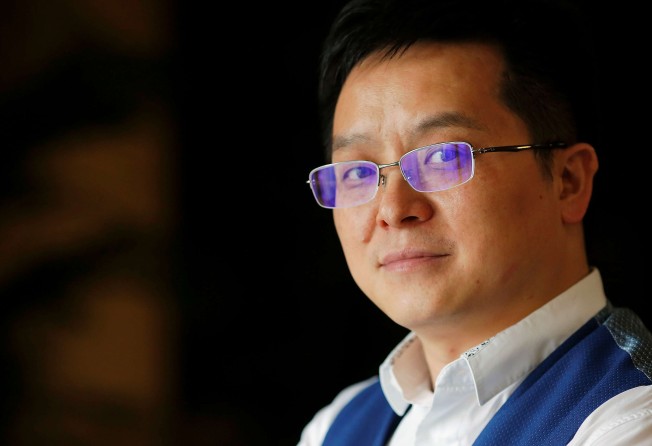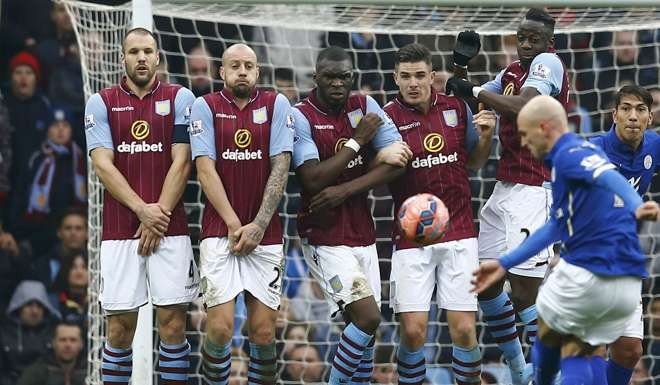Aston Villa owner Tony Xia sets his sights on Hollywood with studio investments
The Chinese tycoon reveals he is buying stakes in three Tinseltown film companies, including one of the “big six”

Having taken the football world by storm this year by purchasing former English and European champions Aston Villa, Tony Xia Jiantong now has his sights set on Hollywood.
The Chinese businessman says he is buying stakes in three major movie companies but promises this won’t distract him from his main goal: to restore Villa to their former glory by taking them back to the Premier League within two years.
And he’s not done building his football empire either. He said he plans to buy more soccer clubs, in France, Spain, the US, India and Australia.
Xia said his move to acquire Villa and return them to top-flight football after they were relegated last season was backed by a comprehensive business plan.
Another part of that business plan is to diversify his investment portfolio.
He told the South China Morning Post he has reached agreement on taking up shares in two film companies in Hollywood, and is close to signing off on a third.
Details of one of the deals, valued at US$200 million, will be made public by the end of this month. Another, worth “billions of US dollars”, involves an investment in one of the “big six” movie studios, says Xia, while the third will be a stake in a “big eight” studio and is worth tens of millions.
The term “big six” in Hollywood normally refers to Warner Bros, 20th Century Fox, Paramount, Universal, Sony Pictures and Walt Disney.
Xia said the combination of the football club brand and the movie-making platforms would increase his engagement with the global consumer market. Although he plans to plough a lot of energy into the new film ventures in the next year, Xia says his priority now is to take Aston Villa back to the Premier League as soon as possible, a goal that is closely related to his business expansion plan.
“A lot of people ask me why Chinese businessmen are so passionate about taking up overseas soccer clubs, but I do not think there is a unified answer,” said the 40-year-old, who holds a PhD in design from Harvard. Dressed in a navy coloured three-piece business suit, Xia spoke to the Post at his office in east Beijing’s CBD area.
But for Xia, targeting soccer fans, serving their consumption demand and eventually expanding this group into a wider global community, is about create a new business empire.
“Soccer is not only a sport. I take it as an industry, which offers great potential.” He said he is in talks with a UK-based fund to develop virtual reality equipment which would enable Villa fans around the world to experience the sensation of watching matches live at Villa Park, the team’s stadium in Birmingham, England.
“I believe Aston Villa will return to the Premier League soon, at most within two years. We will be able to tap the global market in sectors of leisure, healthcare, food and drink, by starting with better engagement with the Villa fans worldwide.”
Aston Villa, the seven-times English champions, found themselves relegated to the Championship, England’s second-tier league, for the first time in early 2016, giving Xia a good opportunity to buy in at a discount price.
He said the 52 million-pounds purchase price was far lower than the 200 million-pound target set by former owner Randy Lerner.
“I took Villa at its worst time. It could not be worse,” he said, adding that he held only two rounds of talks with Lerner before they reached formal agreement.
“Lerner is a nice guy, with a casual manner, but the soccer club has some management issues,” he said.
By intensively engaging with the club for four months in Birmingham, Xia said he has rooted out some of these issues.
“For example, some of the talent scouts we hire to spot European players actually live in Australia. Data analysis is absent from their recommendation reports. It doesn’t make sense,” he said.
Xia believes by addressing problems like these, he will bring Villa back to being a powerhouse of English football. He has already broken with the conventions of European club management, by forcing his way into the changing room and making his presence felt at team meetings ahead of and following matches.
Not afraid to express his views, he has referred to the European soccer universe as “an enclosed circle” whose elite are guilty of “thinking by foot”.

“However, if the team could not return to the Premier League as soon as possible, the financial pressure will become larger and larger. And the boss would face declining commercial income while having to maintain high expenses,” he said.
It’s hard to predict whether Xia’s ambitions - both in football and movies - are realistic or not because even in China, his motherland, his business track record seem ambiguous.
The latest Hurun Rich List, published on Thursday, ranked him the 890 richest person in China with a personal fortune of 4.5 billion yuan. But Xia would not confirm that number, saying Hurun may have based its calculations only on the listed stakes he holds and public deals he carries out.
“Don’t care where I rank on the list of the richest,” he said. “Care how much I am willing to spend on the club. This is what I told Villa fans on Twitter, as some of them were worried that I am not as rich as some Chinese bosses of other soccer clubs.”
Besides spending 52 million pounds on acquiring his 100 per cent stake in Aston Villa in May, Xia has poured a further 55 million pounds into signing nine new players.
On Wednesday, he announced the appointment of Steve Bruce as manager, after the Italian Roberto Di Matteo was sacked as the team slumped to 19th position in the 24-team Championship table with just 10 points from 11 games.
Xia’s path to business success has been nothing if not eclectic.
Xia said he first struck gold in the late 1990s running a business producing city planning maps for more than 500 cities in China. XWHO, the company he founded after returning to China from his studies in the US, was one of only two overseas-registered companies granted a certificate to do business by the Ministry of Housing and Urban-Rural Development.
In October 2014, he took control of an A-share listed company and later changed its name to Lotus Health Industry Holding Group.
It’s Xia’s only publicly traded company with a market value of around 5.8 billion yuan. It reported a loss of 508 million yuan in 2015, while trading at minus 500 times its earnings in Shanghai.
Lotus Health Group hit the headlines last December when it named Xi Yinping, a cousin of President Xi Jinping, as an independent director. The nomination by the board was dropped one day later, after it sparked heated online debate and pushed the company’s Shanghai-listed shares up by their 10 per cent limit.
Recon Group, the flagship company under Xia and a controlling platform for his other assets, remains private. Its financial data is closely guarded.
Teamax, another core asset under his name, which mainly develops “smart city” projects including software development and hardware procurement, was sold to a Shenzhen-listed shampoo producer called Soffto last January. The reverse takeover deal gave Teamax an exceptionally high valuation of 4.1 billion yuan, more than 28 times its net asset value.
His powerful but opaque cash position and mysterious sources of wealth have often made Xia the subject of rumour and speculation.
“I know some people, yes, but I do not do business with them. I do not represent them, either,” Xia said.
Despite breaking his ankle five years ago during an intensive soccer game, Xia keeps up the habit of playing once a week.
“I play as the midfielder attacker, like Messi’s position,” he said.

